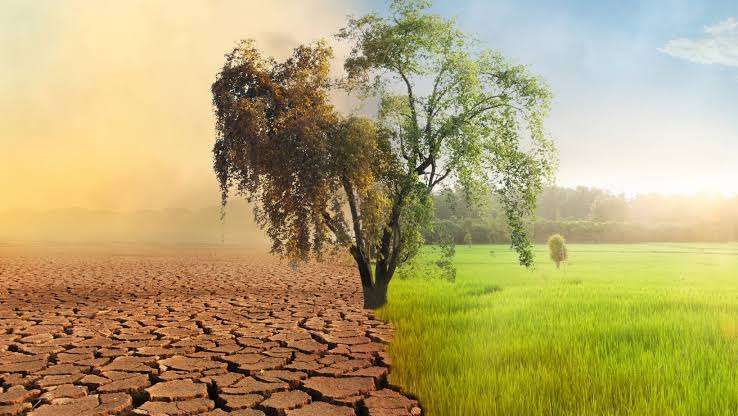In the race to feed a growing population and combat climate change, genetically modified seeds are increasingly finding their way into African soil. But as temperatures rise and climate patterns shift, scientists, farmers, and policymakers are divided on whether these engineered crops are a lifeline or a looming liability.
Across much of sub-Saharan Africa, where agriculture accounts for up to 60% of employment and forms the bedrock of rural economies, the dual threats of food insecurity and environmental stress are forcing urgent innovation.
GMO (Genetically Modified Organism) seeds—hailed for their pest resistance, drought tolerance, and yield stability—have become central to that conversation.
But beneath the promise lies controversy.
What Are GMO Seeds—and Where Did They Come From?
The idea of altering the genetic makeup of crops dates back to the early 1970s, when scientists first discovered how to insert foreign genes into plant DNA. By the mid-1990s, genetically modified crops such as Bt maize and Roundup Ready soybeans began commercial rollout in the United States.
These crops were engineered to resist pests, survive herbicide sprays, or tolerate extreme climate conditions. Monsanto (now part of Bayer), Syngenta, and DuPont quickly emerged as the dominant players, patenting their seeds and transforming agriculture into an increasingly proprietary business.
While adoption in North and South America grew rapidly, Africa remained cautious—largely due to concerns about biosafety, ecological integrity, and the implications of seed patenting on smallholder farmers. Today, however, with increasing food pressures and international funding, several African countries—like Nigeria, Kenya, and South Africa—are opening their fields to GMOs.
GMO Seeds vs Climate Chaos
Proponents argue that the time for hesitation is over. Drought-tolerant maize varieties and pest-resistant cotton are already being tested or grown across the continent. Some reports suggest up to 20–30% yield improvements in trial farms under stress conditions.
“The climate clock is ticking, and our farmers need tools to stay ahead,” says Professor Janet Mbogo, a Nairobi-based agricultural biotechnologist. “GMOs can bridge the gap between dwindling rainfall and rising demand for food.”
Yet critics say that such optimism overlooks deeper challenges.
Many GMO crops are designed for high-input systems—requiring synthetic fertilizers and herbicides that are often expensive and environmentally taxing. Over time, this can degrade soil quality, reduce microbial biodiversity, and lead to herbicide-resistant weeds.
Worse still, patented GMO seeds cannot be replanted by farmers without legal implications. This restricts the traditional practice of seed-saving, pushing farmers to depend on commercial seed companies year after year.
“In a continent where over 80% of farmers are smallholders, seed sovereignty is critical,” says Nnimmo Bassey, director of Health of Mother Earth Foundation. “We’re not just talking about technology—we’re talking about power.”
Why You Should Worry
Some argue that the push for GMOs is framed in a misleading binary: that Africa must choose between technological progress and traditional knowledge. But agroecologists say both can coexist—if priorities are rebalanced.
“There are indigenous seed systems that have survived centuries of climatic variability,” says Fatoumata Diallo, a seed specialist in Mali. “But they lack funding and visibility. Meanwhile, international donors pour millions into genetic engineering.”
Agroecological approaches—intercropping, composting, traditional breeding—are less marketable but often more sustainable. They build soil resilience, maintain biodiversity, and empower local farming communities.
The African Dilemma
This isn’t merely a scientific or economic debate—it’s a political one. Many African nations find themselves caught between international biotech lobbyists, philanthropic foundations promoting GMOs, and vocal civil society groups warning against ecological dependency.
Nigeria, for instance, approved Bt cotton and GM cowpea in recent years, while Ghana’s attempts to commercialize GMO crops have met fierce resistance. South Africa remains the most open to biotech farming, with widespread cultivation of GMO maize, but even there, the long-term environmental and economic effects remain contested.
Climate change is not a distant threat in Africa—it’s a daily crisis. From failed harvests in the Sahel to cyclones in southern Africa, millions are already feeling the strain.
The urgency is real. But as solutions are proposed, Africans must ask: Who profits? Who controls the seeds? And are we planting the right future?
Our Take: No Easy Answers
GMO seeds may offer short-term buffers against climate shocks—but at what cost? As the continent stands at a critical agricultural crossroads, it must balance scientific innovation with ecological wisdom and sovereignty.
In a world where climate disasters are escalating, the seeds Africa plants today will determine not just what it eats tomorrow—but who owns that tomorrow.
Talking Points
GMO Seeds Are Not a Silver Bullet—They May Be a Trojan Horse. Let’s be honest—while genetically modified seeds are pitched as a solution to climate change, they also sneak in a new kind of dependency.
When smallholder African farmers can no longer save their seeds, and must buy patented ones every season, we’re not solving hunger—we’re importing vulnerability. This isn’t resilience; it’s digital-era feudalism.
Who Really Owns Africa’s Future Harvests? The rise of GMO seeds raises a crucial question: who controls the food supply? If tech giants in agriculture—often headquartered in the Global North—own the seed patents, do African nations truly have food sovereignty?
We’re talking about digital colonialism dressed in climate-friendly clothing. That’s not progress. It’s an ownership crisis in slow motion.
Climate Innovation Shouldn’t Mean Ignoring Indigenous Wisdom. Africa isn’t short on climate-resilient farming practices. Indigenous knowledge systems—agroforestry, intercropping, compost-based fertilization—have worked for centuries.
But these methods are often dismissed as “unscalable” because they don’t fit into tech-startup thinking or investor spreadsheets. That’s a mistake. The digital economy should uplift local knowledge, not overwrite it.





